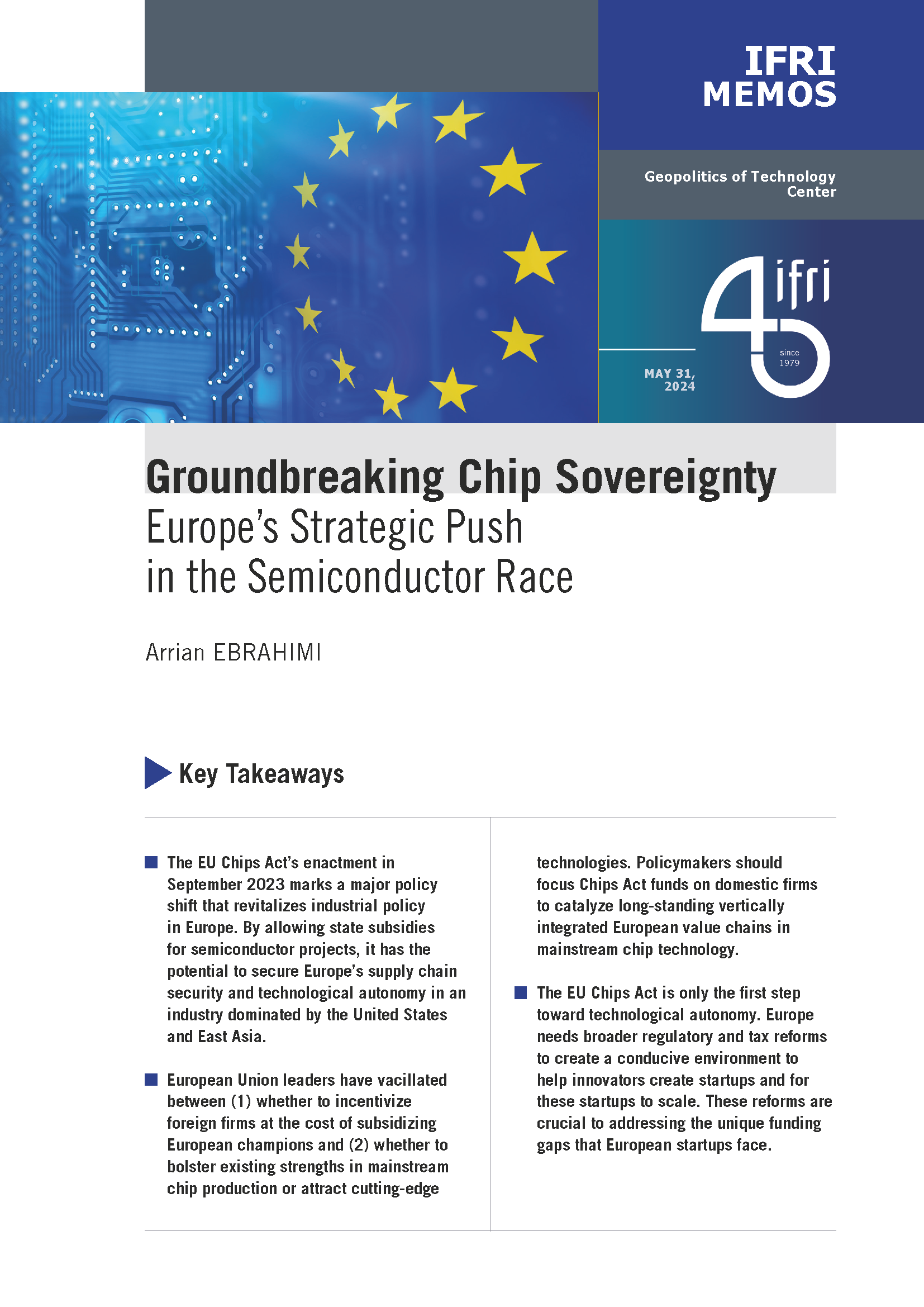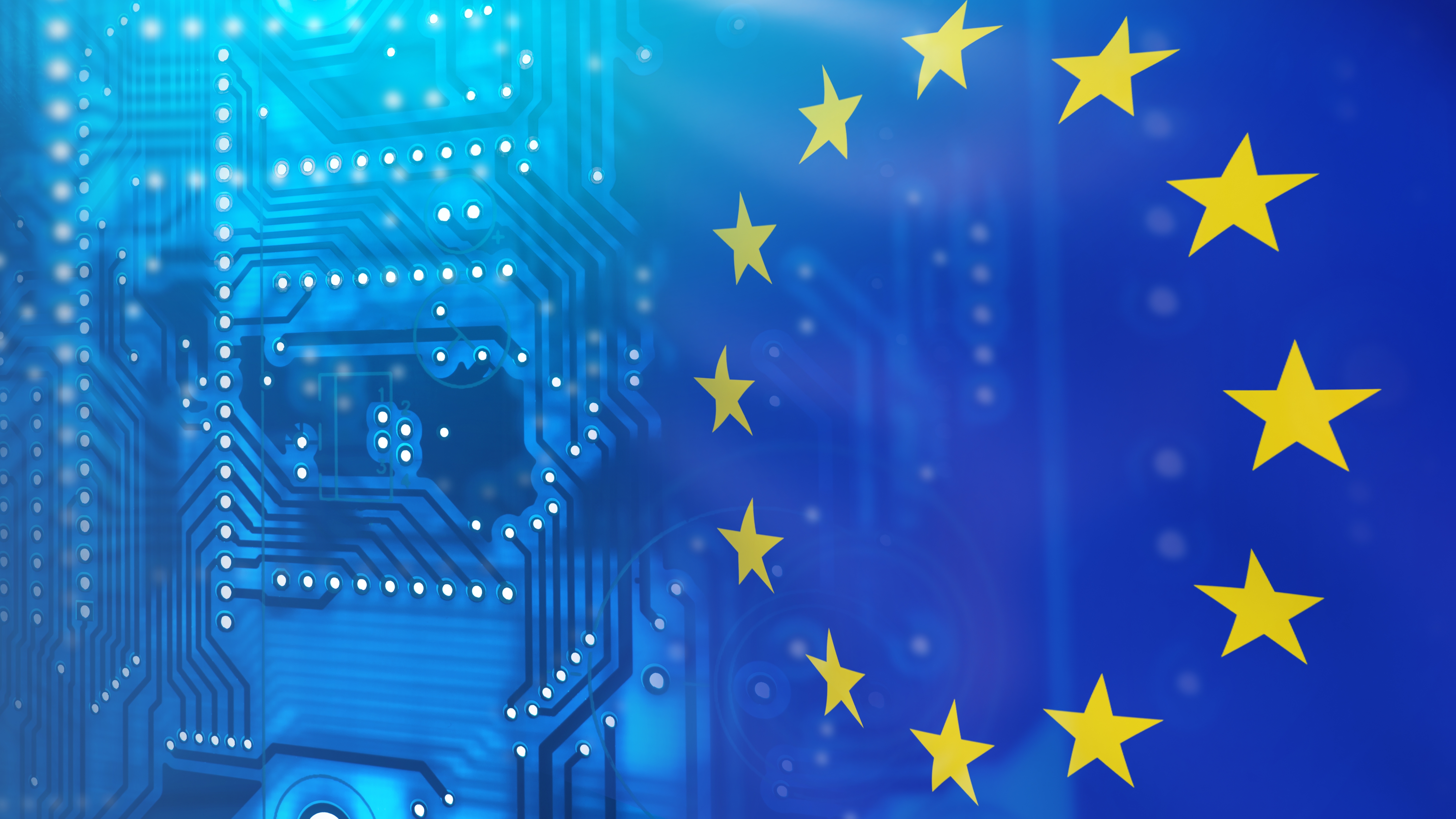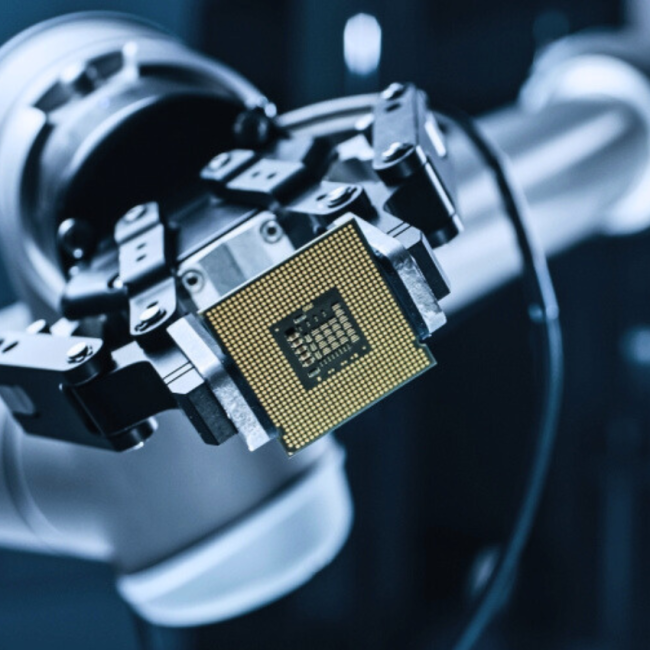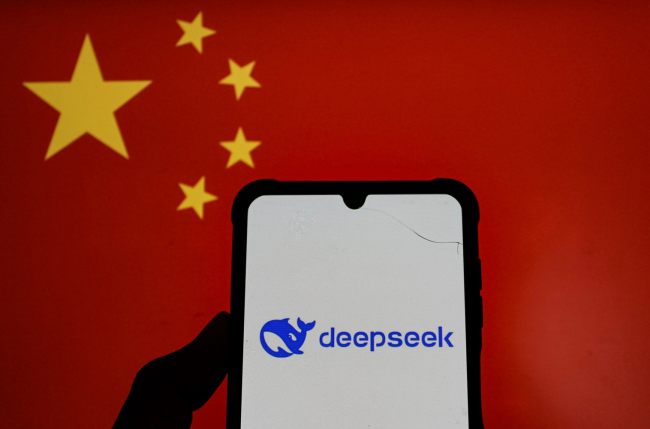Groundbreaking Chip Sovereignty: Europe’s Strategic Push in the Semiconductor Race

The EU Chips Act’s enactment in September 2023 marks a major policy shift that revitalizes industrial policy in Europe. By allowing state subsidies for semiconductor projects, it has the potential to secure Europe’s supply chain security and technological autonomy in an industry dominated by the US and East Asia.

European Union leaders have vacillated between (1) whether to incentivize foreign firms at the cost of subsidizing European champions and (2) whether to bolster existing strengths in mainstream chip production or attract cutting-edge technologies. Policymakers should focus Chips Act funds on domestic firms to catalyze long-standing vertically integrated European value chains in mainstream chip technology.
The EU Chips Act is only the first step toward technological autonomy. Europe needs broader regulatory and tax reforms to create a conducive environment to help innovators create startups and for these startups to scale. These reforms are crucial to addressing the unique funding gaps that European startups face.
This memo lays out what challenges Europe faces in computing, how disciplined implementation of the Chips Act can bolster the continent’s existing strengths, and what further policy reforms could make the EU indispensable in broader swaths of the future chip industry. EU leaders must be honest with what the bloc’s current levels of public funding can reasonably expect to achieve.
If Europe is to build resilient supply chains and increase its technological autonomy vis-à-vis China and the US, the EU Chips Act must catalyze the continent’s domestic virtuous cycle of upstream chip innovation and downstream chip implementation. Beyond targeted support for Europe’s vertically integrated technology ecosystem, broader regulatory and tax reform must follow the Chips Act to create an environment fertile for growing more European champions.

Available in:
Regions and themes
ISBN / ISSN
Share
Download the full analysis
This page contains only a summary of our work. If you would like to have access to all the information from our research on the subject, you can download the full version in PDF format.
Groundbreaking Chip Sovereignty: Europe’s Strategic Push in the Semiconductor Race
Related centers and programs
Discover our other research centers and programsFind out more
Discover all our analysesThe Sustainability of Space Operations: An Opportunity for European Leadership?
As space becomes a key arena for power projection strategies, while facing growth and diversification of orbital activities, the concept of “space sustainability” is emerging as a new framework of analysis for space governance.
The “Huawei Saga” in Europe Revisited: German Lessons for the Rollout of 6G
While the European Union attempted to coordinate a collective response through its 5G Toolbox in Europe’s 5G infrastructure, member states diverged significantly in balancing political, economic, and technological considerations. Germany, despite its economic ties to China and status as Europe’s largest telecom market, only reached a tentative agreement in July 2024—one that appears largely symbolic.
European Startups and Generative AI: Overcoming Big Tech Dominance
Europe is at a crossroads. Faced with the domination of American Big Tech across the entire generative Artificial Intelligence (AI) value chain, from foundation models to cloud infrastructure, distribution channels, and open source, it risks long-term technological and economic decline. Yet generative AI also represents a major opportunity for economic transformation, with a potential value estimated at 1.5 times France’s gross domestic product (GDP). To turn it into a driver of renewal, Europe must move beyond the illusion of total technological independence and instead build an ecosystem that leverages Big Tech resources while strengthening its own innovation capabilities.
A "DeepSeek Moment"?
DeepSeek, hailed as a champion of Chinese AI, represents less a revolution than a significant optimization of existing technologies. Doubts remain regarding the figures put forward by the start-up, inviting a more measured response to the media hype surrounding China’s technological catch-up. Nonetheless, DeepSeek signals the need to question an economic model based solely on the race for computational power. By betting on open innovation, Europe can carve out its own path in a competition that is far from being a zero-sum game.









